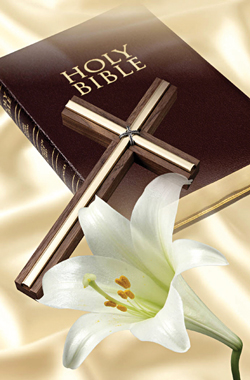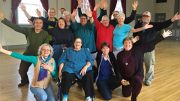 By: Paul P. Jesep*/TRT Columnist—
By: Paul P. Jesep*/TRT Columnist—
Several years ago, I wrote a weekly column for a daily paper. In the photo, I wore a bow tie. It’s amusing the conclusions people made about me based on my appearance.
During World War II, my father saw his village destroyed and friends and family fall victim to the senseless conflict. He became Nazi-forced labor before finding a new life in America. Dad worked as a welder for much of his life. Mom, with a third grade education, also had a less than charmed life having survived the Great Depression.Yet, as bow tie-wearing columnist, I was tagged with being a well-off trust fund baby by those who disagreed with my opinions. By the way, I still haven’t benefited from any wealth or fortune.
In July, one of my daily reflections focused on Mary Magdalene, a devoted disciple of Jesus. The male-dominated church, up until recently, incorrectly portrayed her as a prostitute in an attempt to marginalize her standing as a likely apostle. How often do we accept inaccurate conclusions without finding the truth for ourselves?
Occasionally, I exchange my lawyer’s suit for a clerical collar. Since I don’t do it often, I’m very aware of the reactions I get based on eye contact and body language. Some think they must be on best behavior. Others seem angry, suspicious, or may even offer a mocking comment. If I had a quarter for every time someone said to me, in condescending jest, “Bless me Father, I have sinned,” maybe I would have a trust fund.
Too often our personal judgments and prejudices are projected onto others, events, or situations. It doesn’t matter one’s age, race, gender, religion, or sexuality. It’s one of the foibles of being human. We all project. We judge. [pullquote]Too often our personal judgments and prejudices are projected onto others, events, or situations. It doesn’t matter one’s age, race, gender, religion, or sexuality. It’s one of the foibles of being human. We all project. We judge.[/pullquote]
It might be one of the reasons why the LGBTQ community collectively remains highly suspicious, though understandably so, of faith and religion. Unfortunately, the media continues to primarily interview religious voices opposed to marriage equality far more than the many clergy supporting civil and human rights.
In the 1960s, there were pro-LGBT clergy publicly speaking out on behalf of civil and human rights. No, that’s not a typo. You read it correctly. Over fifty years ago the Council on Religion and the Homosexual was established in California by clergy of various denominations to support LGBT rights. Its objective was to “promote a continuing dialogue between religious communities and in endeavoring to understand better the broad spectrum of variation within human sexuality.”
Thanks to the LGBT Religious Archives Network (LGBT-RAN), a virtual online archive exists to encourage “scholarly study of lesbian, gay, bisexual and transgender religious movements around the world.”
The Network helps LGBT religious leaders preserve their records and papers while serving as an electronic information clearinghouse for “archival collections and other historical data about LGBT religious history for the use of historians, researchers and other interested persons.” It’s an extraordinary resource. LGBTQ clergy or religious allies of the LGBTQ community need to be aware of it, use it, and support it.
Appearances are deceptive. Faith, spirituality, and even religion, with all its baggage for the LGBTQ community, have backed gay and lesbian civil and human rights for decades. If you’re suspicious of faith or religion and still made it to the end of this month’s column, explore LGBTQ religious history at LGBT-RAN. It is rich, mystical, wonderful, and may surprise you. It could renew or awaken your faith.
*Paul is an attorney, seminary-trained priest and founder of CorporateChaplaincy.biz, a firm committed to the spiritual wellness of professionals. He is also author of Lost Sense of Self & the Ethics Crisis: Learn to Live and Work Ethically.





